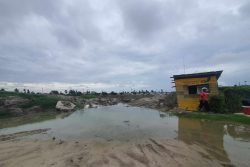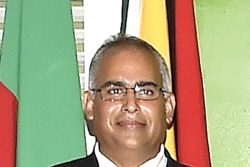Not a great deal of official attention appears to have been paid, here in Guyana, to some of the comments made by the World Bank arising out of its December ‘Data Analytics for Anti – Corruption in Public Administration’ forum, including, particularly, those that have to do with the awarding of state contracts. The Report deals specifically with corruption at the level of the state as it pertains to “unfair” contract awards arising out of tender processes. Its public pronouncements also coincided, roughly, with what appeared to be a pretty open and shut case of a glaringly anomalous recent state tender transaction administered by the Ministry of Education and which caught the eye of the Auditor General.
The matter in question, it should be recalled, was raised with the Minister of Education who had undertaken to engage her Permanent Secretary with a view, presumably, to providing responses to various glaring procedural anomalies in the process of the awarding of the particular contract. Nothing, as far as we are aware, has occurred to satisfactorily address those queries.
In the matter of the administering of state-awarded tenders serious anomalies that have to do with accountability are commonplace in Guyana. The reason why these are rarely if ever ‘a big deal’ insofar as issues of transparency and accountability are concerned, however, is because it is accepted, or at least so it seems, that the integrity-related ’shortcomings’ of a particular political administration are cancelled out by those of the other so that the political opposition that is out of office always finds itself lacking the moral authority to make robust corruption-related charges against a successor. Accordingly, it becomes, more or less, a matter of political ‘cat-sparring,’ rather than any sort of going for the moral jugular, so to speak. Official corruption, truth be told, provides, in a great many instances, the rationale for ‘investment’ in seeking political office.
There is no poor country in the world, insofar as we are aware, where a sudden manifestation of a surfeit of state-controlled material resources does not give way to some degree of questionable profligacy in public spending. Not infrequently, this propensity is met with an official mindset that sets aside the rules associated with accountability. It is at this juncture that stealing from the state comes to be seen as a worthwhile investment in the embarkation on political careers.
This year’s budget reflects the earliest excursion into public spending from our oil ‘bonanza,’ the start of a departure from what, up until now, has been a mostly emotional rollercoaster ride of hopes and dreams deriving from the country’s oil recoveries and the various public discourses, including environmental ones, that have derived therefrom. Here, it is apposite to allude to the pronouncement by Dr. Ashni Singh during his budget presentation on Wednesday that it (the budget) “provides for massive investment in infrastructure…opening vast new tracts of land for productive purposes, establishing entire new communities…and making thousands of Guyanese homeowners for the very first time.” The Budget, he goes on, “lays the basis for thousands of rewarding jobs to be created for Guyanese nationals, including by leveraging the local content opportunities that are now being created and it provides for relevant training to ensure that the Guyanese workforce is suitably equipped.”
If, as Dr. Singh suggests, the portents for unprecedented levels of spending linked to what some might see as the country’s earliest steps into a long-awaited ‘promised land’ are, arguably, present here, there can be no question than that there is, as well, room for ‘wrong turns’ that can derive from the kinds of accountability deficits of which successive political administrations have been culpable.
The start of the process of pressing our oil and gas returns into what are being proffered as nation-building pursuits is the ideal juncture at which to make the point that there is now, all the more reason for us, as a country, to set our faces against corrupt practices that misdirect public funds and in which Ministers of government and other suitably placed functionaries and their accomplices are widely believed to have been involved over the years and which, as has been the case in other countries favoured with sudden and abundant infusions of natural resources, will set us on a path to retrogression that could see us sink a great deal below the level at which we find ourselves at this time.
An important question that arises out of our first ‘oil and gas budget’ is whether execution will be attended by safeguards that reflect a mindfulness of what, going forward, will be far more costly investments in projects that are designed to make even more meaningful inputs into the development of our country, or whether it will provide further ‘incentive’ for those who control the state or else, are ‘well-connected’ with it, to deepen the pit of graft, corruption and outright stealing from the state, thereby departing sharply from the promises articulated in the 2022 budget. We will have to wait and see.






